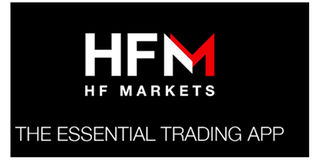5 essential features to consider when choosing a trading platform in Kenya
Sponsored by HF Markets

The growth of online trading has opened up new opportunities, but it has also introduced a range of trading platforms, each with its unique features and capabilities. One such platform that has gained popularity among Kenyan traders is HFM, known for its excellent trading conditions and diverse account types.
As the number of trading platforms continues to increase, it is essential for traders to carefully evaluate the features and functionalities that align with their individual trading needs and preferences. A well-chosen platform can provide a seamless trading experience, access to real-time market data, advanced analytical tools, and robust security measures, ultimately enhancing the chances of success in Kenya's dynamic financial markets.
Traders must take the time to assess factors such as user-friendliness, execution speed, charting capabilities, and customer support, among others. By carefully evaluating these features, traders can find the best fit for their trading strategies, risk tolerance, and overall investment goals, ensuring a rewarding and efficient trading experience.
Regulation and Security
In Kenya's dynamic financial landscape, choosing a regulated and licensed trading platform is paramount for ensuring a secure and trustworthy trading experience. Regulation plays a crucial role in safeguarding traders’ interests by mandating platforms to adhere to stringent legal standards and best practices. The Capital Markets Authority (CMA), Kenya's financial regulatory body, oversees and licenses trading platforms operating within the country, ensuring they meet rigorous compliance requirements.
A regulated platform is obligated to maintain transparent operations, implement robust security measures, and follow strict financial reporting guidelines. This regulatory oversight provides traders with a layer of protection against potential malpractices, such as market manipulation or mishandling of client funds. Furthermore, regulated platforms are subject to regular audits and monitoring, ensuring they consistently uphold the highest standards of integrity and investor protection.
Before engaging with any trading platform, it is essential for traders to verify its licensing status and regulatory compliance with the CMA. This due diligence not only safeguards traders’ interests but also contributes to the overall stability and credibility of Kenya's financial markets.
Trading Instruments and Asset Classes
In today's fast-paced financial markets, having access to a diverse range of trading instruments and asset classes is crucial for successful trading strategies. The ability to trade across multiple markets, such as forex, stocks, commodities, and cryptocurrencies, allows traders to capitalise on various market conditions and diversify their portfolios effectively.
In Kenya, forex trading has gained significant popularity, with traders actively participating in the global currency markets. Additionally, the Nairobi Securities Exchange offers opportunities for trading stocks and equities across various sectors. Commodities like coffee, tea, and agricultural products also present viable trading options for Kenyan traders.
Choosing a trading platform that offers the specific instruments and markets aligning with a trader’s interests and goals is essential. A diverse offering not only caters for individual preferences, but also enables traders to explore different trading opportunities and potentially enhance their returns through diversification strategies.
User-Friendly Interface and Charting Tools
A user-friendly and intuitive trading platform interface is essential for enhancing the overall trading experience and improving efficiency. A well-designed interface should be visually appealing, easy to navigate, and provide quick access to essential tools and features. This seamless interaction between the trader and the platform can significantly reduce the learning curve, allowing traders to focus on their strategies and decision-making processes.
Advanced charting tools and technical analysis features are also crucial components of a robust trading platform. Traders rely heavily on these tools to identify market trends, patterns, and potential entry and exit points. A platform that offers customisable charts, a wide range of technical indicators, and drawing tools, empowers traders to tailor their analysis to their specific trading strategies and preferences.
Furthermore, the ability to customise charts, indicators, and drawing tools allows traders to create personalised workspaces that align with their unique trading styles. This level of customisation not only enhances the user experience, but also facilitates more informed and data-driven trading decisions.
Mobile Trading Capabilities
In Kenya, where mobile technology has become an integral part of daily life, the importance of mobile trading capabilities cannot be overstated. Mobile trading platforms offer traders the convenience and flexibility to monitor their positions, execute trades, and access real-time market data from anywhere, at any time.
A responsive and feature-rich mobile app or mobile-optimised platform is essential for traders who value mobility and want to stay connected to the markets. With a mobile trading platform, traders can seize trading opportunities as they arise, react quickly to market movements, and manage their portfolios on the go, without being tethered to a desktop computer.
Customer Support and Educational Resources
Reliable and responsive customer support is a critical aspect of a reputable trading platform. Traders should have access to multiple support channels, such as phone, email, and live chat, to address any queries or issues they may encounter during their trading journey.
Choosing a platform that prioritises trader education and development demonstrates a commitment to fostering a well-informed and successful trading community, ultimately contributing to the overall growth and maturity of Kenya's financial markets.
A Better Trading Experience
In Kenya's financial landscape, traders must carefully evaluate features such as regulation, security, trading instruments, user-friendly interfaces, charting tools, mobile capabilities, customer support, and educational resources when choosing a trading platform.
By prioritising these essential factors, traders can find the best fit for their individual needs and preferences, paving the way for a successful and rewarding trading experience.


